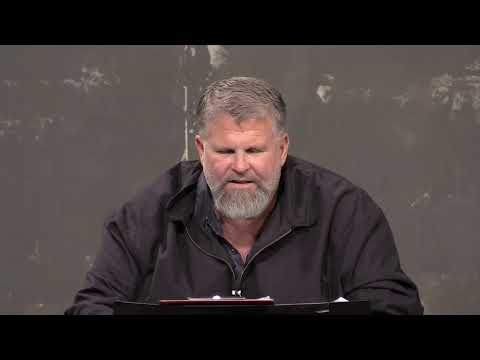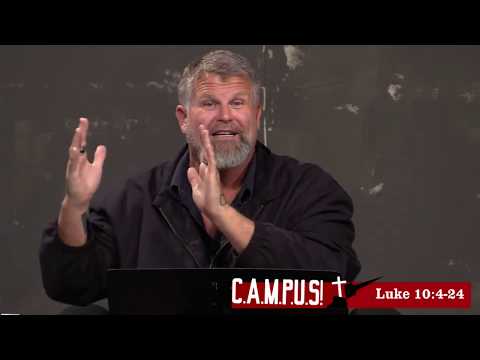
Luke 10:25-42 Bible Teaching
Jesus teaches eternal life through faith and love, exemplified by the Good Samaritan's compassion. Prioritize spiritual presence over distractions, love over rituals.

Jesus teaches eternal life through faith and love, exemplified by the Good Samaritan's compassion. Prioritize spiritual presence over distractions, love over rituals.

Paul and Shawn urge believers to live as "children of light," avoiding sin, embracing goodness, righteousness, and truth, guided by the Spirit, reflecting God's will.

Renew your mind by adopting righteousness and holiness, avoid dishonesty, embrace love, kindness, gratitude, truthfulness, and forgiveness. Work diligently, avoid idleness, and embody Christ's sacrificial love. Avoid immorality to inherit God's kingdom.

Shawn contrasts Matthew's feminine and Luke's masculine Gospel accounts of Jesus sending followers, highlighting diverse unity in Christ's body and mission beyond Israel.

Paul and Shawn teach believers to abandon past sinful ways, embrace spiritual renewal through Christ, and live righteously, focusing on truth, kindness, and forgiveness.

Shawn's teaching explores Jesus' incarnation, emphasizing His mission to save, not destroy, and prioritizing spiritual commitment over worldly concerns, urging urgency in spreading God's message.

Paul reinterprets Psalm 68:18 as Christ's ascension, bestowing spiritual gifts. Shawn argues early Church roles are now internalized through the Holy Spirit, emphasizing maturity.

Shawn explains Elijah's prophecy fulfilled by John the Baptist, Jesus' teachings on faith, humility, and spiritual growth, and the importance of childlike openness and inclusivity.

Paul's letters blend theology with practical living, urging unity, humility, and love. Shawn stresses adherence to apostolic teachings, fostering peace and shared faith.

Shawn's teaching highlights Peter's human instincts during the Transfiguration, the distinction between "beloved Son" and "only begotten Son," and challenges traditional Trinity views by emphasizing Jesus' transformation and unique role post-resurrection.

Jesus teaches self-denial, prioritizing spiritual goals over worldly gains, taking up one's cross daily, and not being ashamed of faith. Transfiguration confirms His divine mission.

Paul: God strengthens believers internally through His Spirit, with Christ dwelling in hearts by faith, rooted in love, understanding Christ's love, filled with God's fullness. Shawn: God is the source, working through the Spirit and Christ, emphasizing prayer to the Father, believers as a spiritual family, unified by faith, enriched by God's glory.

Paul's humility, preaching to Gentiles, unity of Jews and Gentiles, God's wisdom through the Church, eternal plan in Christ, transformative faith, and love.

Old Testament sets the stage for the Messiah; New Testament fulfills it through Jesus. Jesus' identity as the Christ is affirmed by Peter. Discipleship requires self-denial.

Shawn's teaching on Luke 9 highlights Jesus empowering apostles, focusing on Israel first, historical Jewish-Samaritan tensions, reliance on God, and Jesus' miracles.

Gentiles, once outsiders, are now part of God's family through Christ, the cornerstone. Built on apostles/prophets, believers form a spiritual temple, unified in faith.

Paul and Shawn teach unity in Christ, emphasizing inward transformation over rituals, reconciliation of Jews and Gentiles, and peace through Christ's sacrifice.

Jesus heals a demon-possessed man, Jairus' daughter, and a bleeding woman, highlighting faith, healing, and agape love. Emphasizes grounding in God's Word for peace.

The teaching covers the split of Israel into two kingdoms, salvation's evolution post-resurrection, multiple future ages of grace, salvation by faith as a gift, spiritual rebirth, and good works as a reflection of faith.

Jesus' teachings emphasize spiritual kinship, authority over nature and demons, faith amidst life's storms, and his unique divine identity, highlighting his power and purpose.

Teaching emphasizes God's power to transform believers, spiritual rebirth through grace, overcoming sin, and unification of Jews and Gentiles in Christ.

Shawn's teaching on Luke 8:1-18 highlights Jesus' use of parables, the role of women in His ministry, spiritual truths, and the internal nature of God's Kingdom.

The teaching contrasts a repentant sinner's love and faith with a Pharisee's judgment, emphasizing forgiveness, gratitude, and the heart's attitude in seeking reconciliation with God.

Paul teaches that God's power raised Christ, placing Him above all authority as head of the church. This power also transforms believers, granting them wisdom and new life.

Jesus affirms His messianic identity through miracles and preaching, praises John the Baptist, emphasizes spiritual rebirth, and critiques religious leaders' hypocrisy.

Paul's teaching in Ephesians 1:15-23 highlights gratitude for Gentile faith, prays for spiritual wisdom, emphasizes Christ's power, unity in the church, and transformative grace.

Jesus teaches that actions reveal the heart's true nature, like trees by their fruit. Genuine faith requires action, not just words. A strong foundation in Christ ensures resilience.

Shawn's teaching on Ephesians 1 focuses on predestination for Israel, redemption through Christ, unity of Jews and Gentiles, rejection of Calvinism/Arminianism, and Holy Spirit sealing.

The teaching examines Ephesians 1:1-11, focusing on God's overarching purpose rather than individual predestination, highlighting unity of Jews and Gentiles in Christ.

Jesus and Shawn teach prioritizing spiritual values over wealth, love for enemies, agape love, mercy, forgiveness, self-reflection, and generosity for divine rewards.